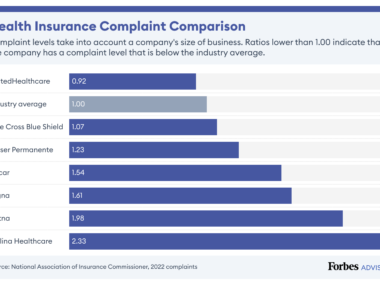Legal powers
Trade powers of attorney enable companies to delegate certain powers and responsibilities to a person or unit, even temporarily. From a legal point of view, these authorized persons are thus able to act on behalf of the company. A clear definition of these powers via a commercial power of attorney creates legal certainty for the persons involved and enables the company to react flexibly to market conditions without always having to rely on the company’s official representatives.
b. Compliance and Regulation
In today’s complex business world, companies must comply with a wide range of laws and regulations. Trade powers of attorney play a central role in this. They can be used to employ experts with specialized knowledge to ensure that the company acts in compliance with all relevant regulations. This minimizes the risk of violations and the associated legal and financial consequences.
c. Risk management
The granting of trade powers of attorney is a key element in risk management. By delegating responsibilities and liability to qualified persons or entities, the company can minimize risks. A well-structured commercial power of attorney sets clear limits within which agents may act and protects the company from potentially adverse acts.
d. Special cases
Trade powers of attorney may also be required in special legal situations. Examples include company takeovers, joint ventures, insolvency proceedings or other complex transactions. In such cases, commercial powers of attorney allow efficient use by making it possible to transfer certain powers quickly and legally to those who have the necessary expertise and experience.
How Do You Issue a Commercial Power of Attorney?

BGB § 167 Granting of power of attorney
(1) The power of attorney is issued by declaration to the person to be authorized or to the third party against whom the representation is to take place.
(2) The declaration does not require the form intended for the legal transaction to which the power of attorney relates.
Creating a trade power of attorney requires care and understanding of legal requirements and business goals. Here are the key steps:
a. Type and form of grant
As with the power of attorney, the power of attorney is granted by a unilateral declaration of intent that requires receipt. This means that the person issuing the power of attorney must clearly express their intention and the declaration must be sent to the recipient, i.e. the authorized person. Unlike the power of attorney, the power of attorney can also be delegated by another agent, but this requires the consent of the owner of the commercial transaction. Furthermore, in contrast to the power of attorney, the owner of the trading transaction himself does not have to grant power of attorney in accordance with Section 54 I of the German Commercial Code. Granting is also possible by an appropriately authorized agent or by the authorized signatory.
It is also possible to grant power of attorney implicitly, i.e. through coherent action. If a party’s actions clearly indicate that it recognizes the powers of a proxy, this can be interpreted as a power of attorney issued.
However, in most cases, it is better to set down a power of attorney in writing. The reason for this is that writing increases clarity and security. The exact scope of the power of attorney, any time limits and specific conditions can be clearly defined and documented. This avoids misunderstandings and disputes that could arise as a result of unclear or vague implied agreements. The written statement thus creates a solid basis for the relationship between proxy and representative and promotes trust in the business relationship.
b. Identification of the parties involved
It all starts with a clear identification of the parties involved. Who will grant the power of attorney and who will be the authorized person? The careful selection and identification of the parties involved is crucial for the effectiveness of a power of attorney. It helps to maintain the integrity of the business process and to minimize the risk of misunderstandings or legal disputes.
Proxy
The proxy is the person or organization that gives power of attorney. The latter must have the right to issue the power of attorney. In many cases, this is the owner of a company or its legal representative. However, there may also be other persons in the company who have appropriate power of attorney or commercial powers of attorney. The ability to grant power of attorney is subject to certain legal conditions and requirements, and the proxy must ensure that he is entitled to do so.
Recipient of power of attorney
The recipient of the power of attorney is the person or entity who is given the authority to act on behalf of the proxy. The granting of a power of attorney represents a declaration of intent that requires receipt, i.e. it only becomes effective when it is received by the recipient. The recipient of the power of attorney is also obliged to accept the declaration of intent.
The power of attorney can also be given implicitly, for example through coherent action, but a written power of attorney signed by both sides ensures clear agreements. It documents the exact scope and any time limits of the power of attorney and ensures that both parties are aware of their rights and obligations.
c. Scope of authority
The Commercial Code (HGB) provides for various forms of powers of attorney, with the exact structure depending on the respective company situation. However, this section is not about the individual variants, but about the importance of precisely defining the scope of the power of attorney.
A clear regulation of the scope is essential to ensure that the power of attorney fulfils its intended purpose without creating unwanted risks. A power of attorney that is too far-reaching or ambiguous can enable transactions that are not in the interest of the company. Conversely, an overly restrictive power of attorney can unnecessarily restrict business activities.
The precise definition of the scope helps to avoid misunderstandings and allows both parties to manage the relationship on a solid legal basis. This underlines the need to carefully determine the scope of a power of attorney and to tailor it according to the specific needs of the owner’s commercial sector. The scope should not be allocated unrestrictedly, but always on the basis of what is actually necessary to make the business possible without jeopardizing the integrity and interests of the company.






